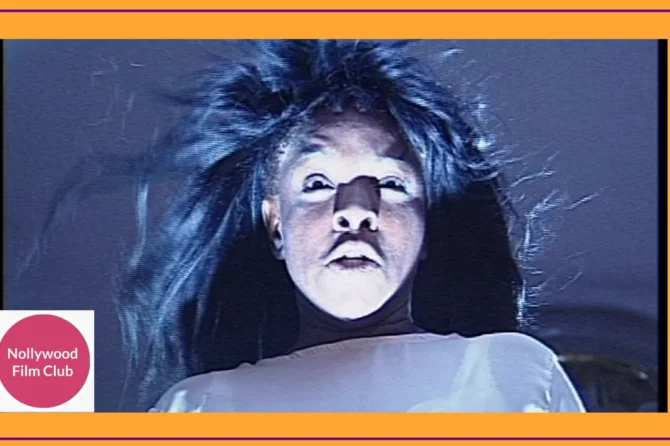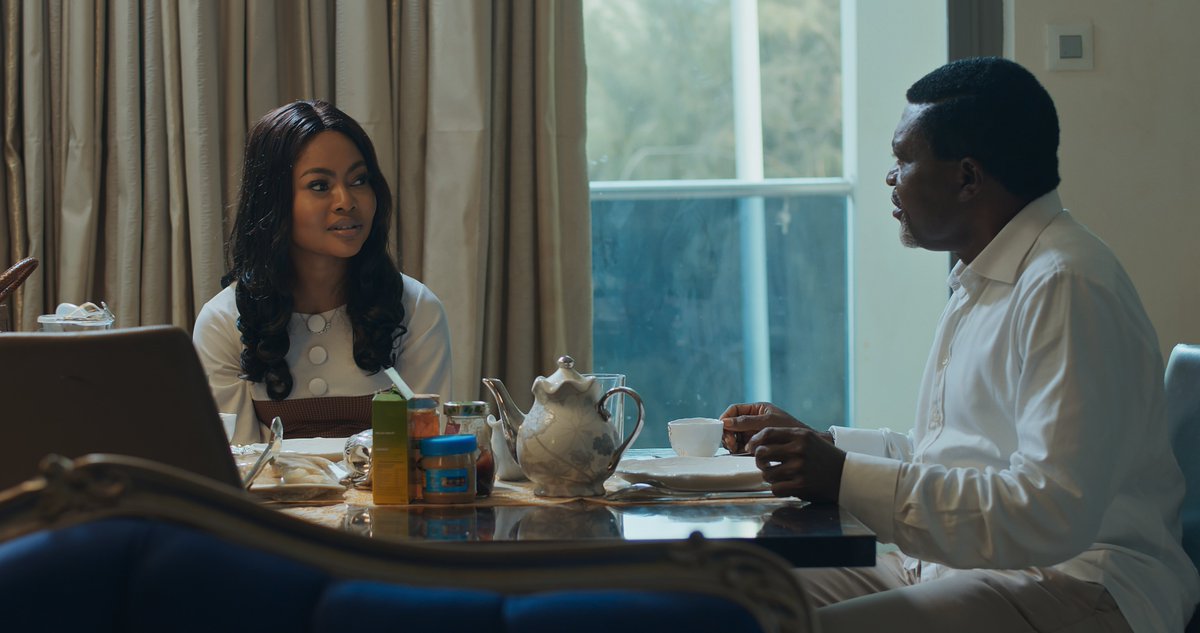The top comment in one of the Zikoko Life shorts reads, “Please, shoot more videos. This struck my heart. I’m in my 40s, and yet, I know love will find me.” The film being referred to is “Something Sweet”, the second entry in the Zikoko Life anthology about a man in his late twenties who falls for a woman in her forties. This comment has stayed with me for days, kicking around in my head rent-free, because of how honest and vulnerable it is. The tone is one of pleading and relief, as if the commenter has finally been able to exhale after holding their breath for so long. This person is clearly elated to find a story that speaks to their status without judgement or hyperbole.
(Click to Follow the What Kept Me Up channel on WhatsApp)
Nollywood tends to favour broad, conventional stories. While there’s nothing wrong with those, when such narratives dominate the screen, too many real, complicated human experiences slip through the cracks.
After all, what is cinema, if not dreams made flesh? What is film for, if not the exploration of our hopes and anxieties on both a cultural and individual level, through carefully crafted artifice? Nigeria is a nation of diverse peoples, each one with their own unique experience, and they deserve to have their stories told alongside Nollywood’s mainstream output.
This is the idea behind the Zikoko Life shorts. Created by Anita E. Eboigbe for Big Cabal Media, and produced by Blessing Uzzi (also showrunner) of Bluhouse Studios, the stories are inspired by real experiences published in Zikoko articles (from Naira Life, Love Life to Sex Life).
The first short, the quietly devastating “What’s Left of Us”, written by Victor Daniel and directed by both Daniel and Olamide Adio. Aliyu (Caleb Richards) and Mariam (Tolu Asanu), who reach an impasse in their marriage when Mariam decides she does not want to have any more children. The film opens with Mariam sneaking off to the bathroom to take her daily contraceptive pill. Asanu is able to convey the weight of Mariam’s routine with a blank stare and a sigh. She would rather not keep this from her husband, but the circumstances have made silence easier than confrontation.
Aliyu, meanwhile, has been cheating on Mariam with a woman named Fatima (Joy Sunday). When he discovers the pills, he is aghast, and in a fit of blind anger, sends her out of the house. Here, we see a woman fighting for autonomy over her body pay the price for going against the norm. Too many men reduce women (and their bodies) to two purposes: sexual satisfaction and bearing children. For them, where women are concerned, complexity and personhood do not exist, only gender essentialism. Aliyu desires a large family, and he expects Mariam to fulfill his dreams whether she likes it or not.
In “Something Sweet”, a tender love story, written and directed by Dika Ofoma (A Quiet Monday), there is a bit more understanding between the couple. Leke (Ogranya) is enamoured with Ziora (Michelle Dede) the first time they meet, and he quickly falls in love. She is taken aback when he professes his feelings, scoffing at the idea of a young man in his twenties being genuinely interested in a divorcee with a teenage son. But the heart doesn’t want what the heart doesn’t want, and Leke doesn’t want to be without Ziora. Ziora feels the same way, but is willing to deprive herself of love and companionship because it doesn’t look the way society says it should. The film explores Ziora’s reservations and the initial disapproval of her son and Leke’s mother.
Zikoko started out as a go-to platform for young Nigerians, known for its sharp listicles and relatable personal stories. With this anthology, they’ve taken a turn into narrative film, adapting anonymous experiences into shorts that resonate deeply with the Nigerian audience. It’s a natural next step for a brand that has always captured everyday life with equal parts wit and empathy.
Beyond the representation which makes the audience feel seen and understood, the Zikoko Life shorts are attempting to “normalize,” as Twitter netizens say, the seemingly unconventional image of what it means to be a woman in Nigeria— and what better medium for this than film?
Films can initiate, influence, and even dictate the terms of public discourse. Consider My Body, God’s Temple, the disarmingly honest third film in the anthology. It follows Omasilu (Uzoamaka Power, who does a great job writing, directing, and performing), a devout woman who remains a virgin until marriage, only to find herself struggling with sexual intimacy. Raised with the belief that her body is God’s temple, she has so much shame about her sexuality that she imagines intercourse as inherently violating.
That a woman can be committed to her faith and still desire sexual fulfillment is a fact glossed over in our stories, and even our conversations. Sex is spoken about in hushed tones or not at all, amplifying the shame around a natural part of being human, of being a woman. On a girls’ night out, Omasilu is framed in a single shot, underscoring her isolation, while her three friends are framed together. Initially, she is unable to open up to them about her struggles, and takes it to the Lord in prayer instead. Her husband, Zion (Andrew Bunting), attempts to connect with her but ultimately, she first needs to figure it out on her own.

Beyond its important messages, the anthology is executed with flourishes of visual brilliance. For instance, when Mariam and Aliyu visit an Imam for counselling, the face of the spiritual leader is not shown. Rather, the focus of the scene is Mariam’s disillusionment with patriarchy and her disappointment with her husband. All three shorts have scenes with striking colours as well as motivated blocking and camera movement.
The weakest part of the anthology can be found in some of the characters. Their actions and dialogue sometimes fail to be specific enough to create that much of a universal experience for the audience. We hardly get at why they think or act the way they do, at least not beyond surface-level interrogations of motive. This leaves the conflict with not as much bite as it should have. A good example is Aliyu and Mariam’s final scene; it seems like they are repeating talking points at each other and not quarrelling like a married couple who have known each other virtually all their lives.
Still, there is a lot to enjoy, and many viewers will walk away from these films thinking and feeling differently about sex, age-gap relationships, and financial and bodily autonomy as far as Nigerian women are concerned. And that, especially for people like the commenter above, is an absolute win.
Zikoko Life anthology series premiered across 3 weeks on YouTube.
Become a patron: To support our in-depth and critical coverage—become a Patron today!
Join the conversation: Share your thoughts in the comments section or on our social media accounts.
Track Upcoming Films: Keep track of upcoming films and TV shows on your Google calendar.
Side Musings
- Shout out to the directors and location scouts for those beautiful University of Ibadan locations in “What’s Left of Us”.
- I heard the cast and crew laughed while filming the church scenes in My Body, God’s Temple. I could tell.
- The chemistry between Michelle Dede and Ogranya in “Something Sweet” was quiet but palpable. She was looking at him like cake.
- Normalize life not looking like you expect but moving forward anyway with grace, kindness, and hope.
- N.B.: This critic has worked with Bluhouse Studios as part of a writing team.





